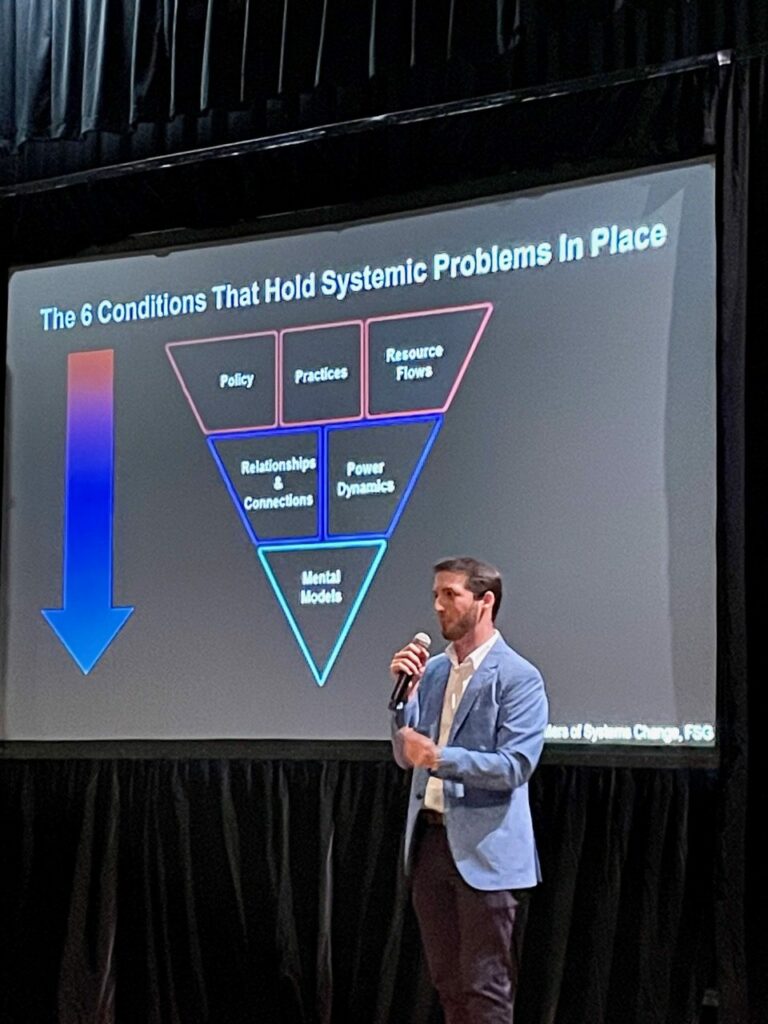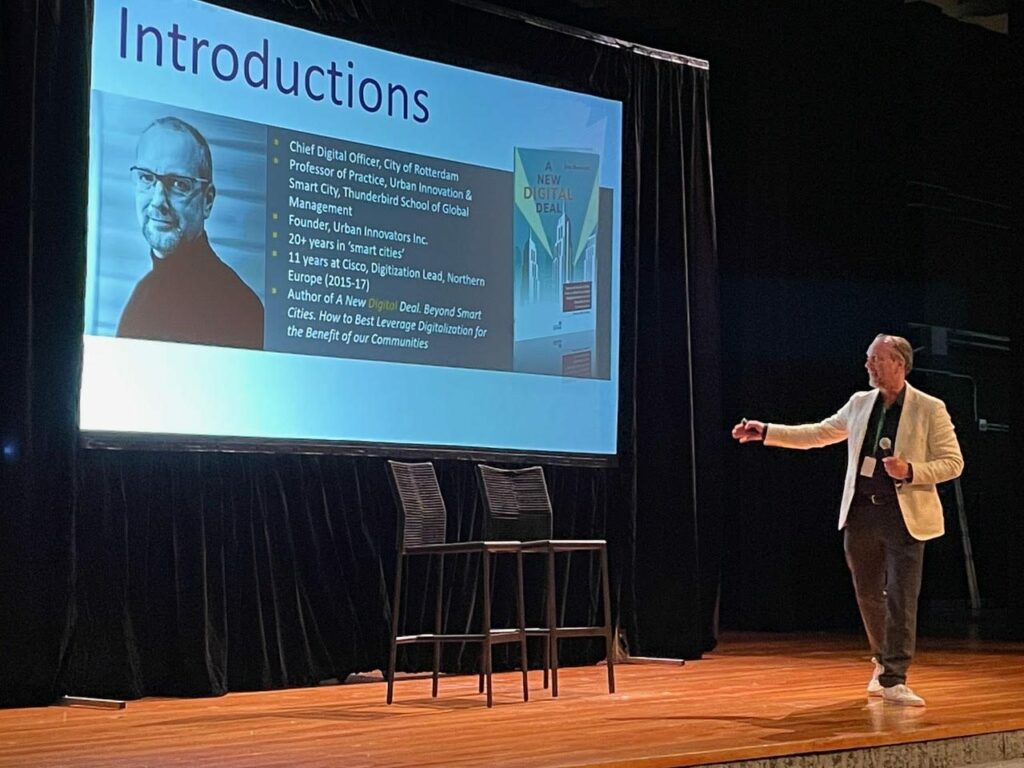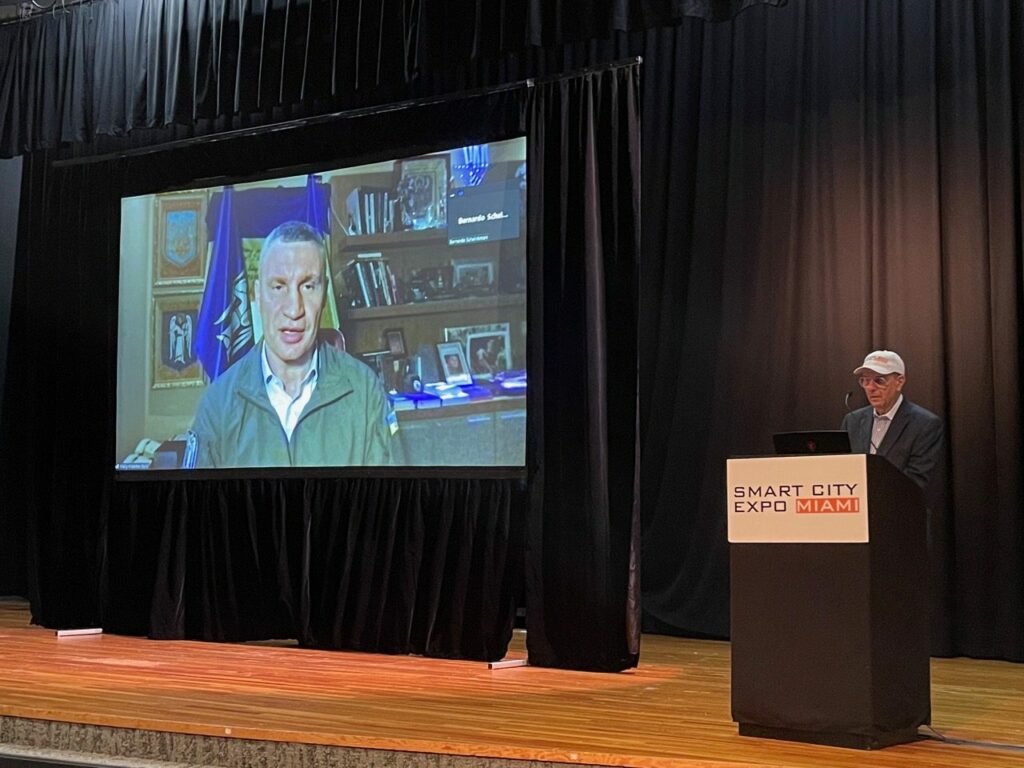By Riley Kaminer
Just how ‘smart’ is Miami anyways? As a city, how does our proclivity towards the tech-forward impact our efforts to build a sustainable, resilient future?
These questions were top of mind at the Smart City Expo Miami, a global conference with local roots, curated by Miami-based Bernardo Scheinkman, CEO of Smart Cities Americas.. Over the course of three days, more than one hundred innovators, public officials, and citizens came together in person at the James L. Knight Conference Center in Downtown Miami – while an additional 5,000 attendees from over 85 countries tuned in online.
It all starts with the county
Miami-Dade Mayor Daniella Levine Cava headlined the conference, sharing her vision for the tech-powered future of our county.
“Miami is the city with the greatest promise, and the greatest challenges,” she said, referring both to our tech and environmental ecosystems. Levine Cava hopes that Miami can ultimately be an international point of reference for other areas affected by climate change.
“We’re going to address these heads on,” asserted Levine Cava, underscoring the importance of leveraging tech innovations such as ClimateTech, HealthTech, and FinTech.
Her goal? Develop a local economy that is inclusive, equitable, resilient, and collaborative. “All of this requires smart city innovators,” said Levine Cava, highlighting the city’s work to collaborate with entrepreneurs and other public servants across the South Florida region.
Don’t forget about the seven seas!
Daniel Kleinman is one of those innovators. The founder of ClimateTech incubator Seaworthy Collective, Kleinman pointed out that we are “terrestrially biased” when it comes to climate change – overlooking the power of oceans to turn the tide of climate change.
“As we think about how we build out our smart cities, we should factor in the ocean as a critical piece of our ecosystem – and leverage the 71% of our planet to regenerate our planet,” he said.

Anya Freeman, founder and CEO of Kind Designs, has taken Kleinman’s message to heart. The Ukrainian native has devised a solution to 3D print environmentally-friendly seawalls in a process that takes around 45 minutes from panels. Compare that to the 24 hours it typically takes to create a panel using traditional molds.
“We’re selling these panels to contractors at $25 per square foot: the same price that it costs them to make their own panels,” said Freeman. “It’s a no-brainer to use these panels to save construction time, in addition to their environmental benefits.” According to Freeman, Kind Designs already has $2.5 million in orders ready to go into production as soon as the startup secures its next funding round.
ClimateTech and smart city innovation increasingly in focus
In a conversation with Miami Herald lead climate change reporter Alex Harris, Miami-Dade climate tech and economic innovation advisor Galen Treuer shared his insights on how the county aims to further support entrepreneurs like Freeman and Kleinman.
“Tech investment in South Florida hasn’t focused on climate,” Treuer said. “We’re not a hub for it – at least not yet. But I’m here trying to make it happen. And I can tell you folks are excited.” Treuer cited recent conversations with climate-minded financial executives, plus lively discussions about ClimateTech in events sponsored by Opportunity Miami, as two positive signals that ClimateTech is increasingly prominent in our local tech ecosystem.
Further evidence to support Levine Cava’s vision of Miami-Dade as a globally-recognized climate hub can be found just a few miles south in Coral Gables. Raimundo Rodulfo, the city’s Chief Innovation Officer, gave attendees a snapshot of how his team is leveraging smart cities tech.
Some highlights include the city’s smart lighting systems, which can be controlled in real time; their traffic and parking sensors, which alleviate congestion and the accompanying pollution; and a data sharing partnership with Google’s Waze app to better understand traffic flows in this 50,000-person city that has one million cars pass through it every day.

Taking a global perspective
Contextualizing these Miami-centric conversations were insights from a wide range of global leaders, including leading smart city thinkers Paul Doherty and Jonathan Reichental.
For instance, Bas Boorsma, Chief Digital Officer of the City of Rotterdam, outlined his vision to leverage tech to forge a sustainable future.
“We want cities that are livable and equitable,” he said, underscoring the need to craft a shared language and culture around ‘smart cities’ movements that all citizens understand and are empowered to participate in.

Meanwhile, Kyiv Mayor Vitali Klitschko shared how his city leveraged smart city technology to fight their war for independence. One tool in particular: an online platform to help citizens to find bunkers and other shelter options during attacks.
“Giving up is not an option for us,” Klitschko told the audience via Zoom.

READ MORE ON REFRESH MIAMI:
- Global expo aims to teach Miamians how ‘Sustainable is the New Smart’
- Meet the entrepreneurs developing Living Seawalls to help combat rising sea levels, shaping the climate-tech space
- South Florida is a hotbed for climate tech innovation. Here are 5 reasons why
- Meet the South Florida native on a mission to solve the ocean’s biggest problems





